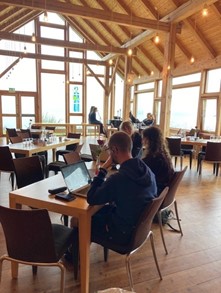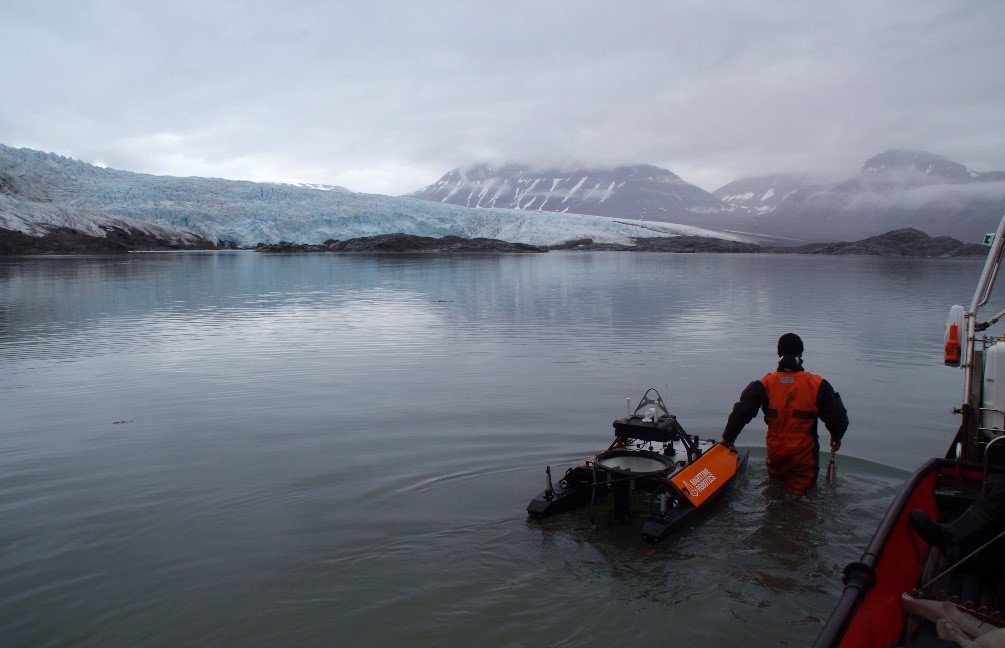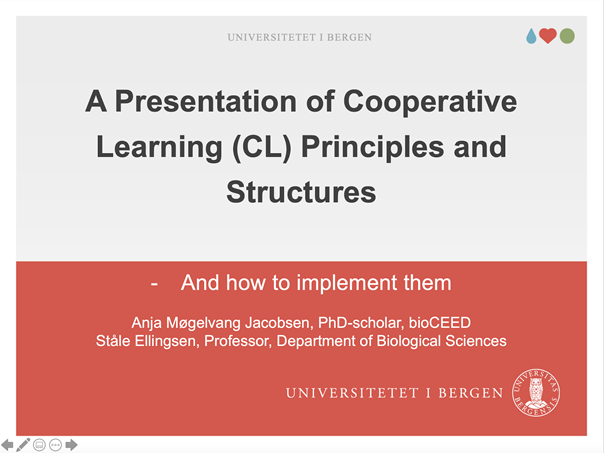Implementation of reflective thinking in BIO250 at UiB

Photo by Anne Elisabeth Bjune
This early fall, two workshops about tools for graphical representation of reflective thinking were organized for students enrolled in the Palaeoecology course (BIO250) at the University of Bergen. These workshops are part of a collaboration between Anne Elisabeth Bjune from the University of Bergen (course responsible) and Kseniia Kalian from the University Centre in Svalbard. Kseniia is a postdoc in the FieldPass project and mainly responsible for the reflection part of the project.
There are strong reasons to think that tools such as flow charts, relational concept maps, risk assessment maps and self-assessment maps could help students to reflect about their fieldwork experience in a more structured way. This could support students to maintain their line of thinking, so they can (hopefully more often than before) reach meaningful conclusions out of their experience. This is important because the whole point of fieldwork is learning from experience. Time is often a limited factor during fieldwork where students often have to learn a whole set of new skills. Teaching students how reflective writing and its graphical representation can help better process their experience can be really useful. At the same time, structured reflection makes the assessment much easier: while structuring it, students decide what parts of their reflective writing could be graphically represented in a meaningful way and what should be discarded. Structured and graphically represented reflection can then be assessed by the academic staff to determine whether students have achieved intended learning outcomes.
Kseniia has already gotten preliminary results from her studies and will continue to collaborate with students from BIO250.



